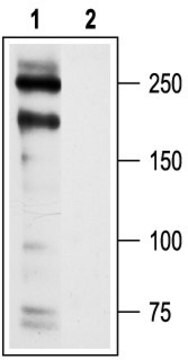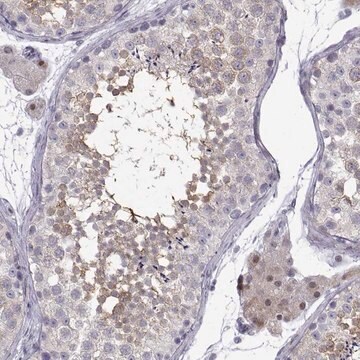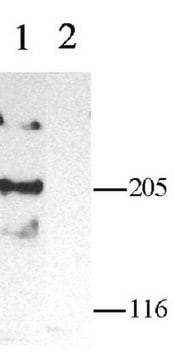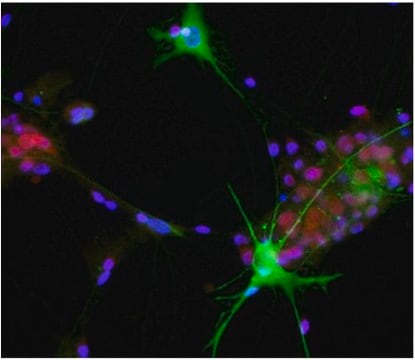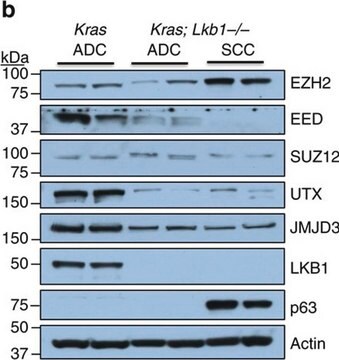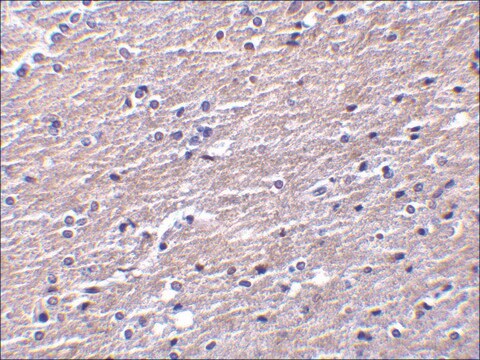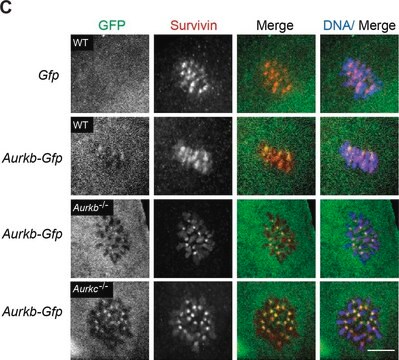NR07
Anti-Ryanodine Receptor Mouse mAb (C3-33)
liquid, clone C3-33, Calbiochem®
About This Item
Productos recomendados
biological source
mouse
Quality Level
antibody form
purified antibody
antibody product type
primary antibodies
clone
C3-33, monoclonal
form
liquid
contains
≤0.1% sodium azide as preservative
species reactivity
fish, canine, rat, avian, amphibian, rabbit
manufacturer/tradename
Calbiochem®
storage condition
OK to freeze
avoid repeated freeze/thaw cycles
isotype
IgG1
shipped in
wet ice
storage temp.
−20°C
target post-translational modification
unmodified
Gene Information
rat ... Ryr2(689560)
General description
Immunogen
Application


Frozen Sections (1 g/ml, see application references)
Immunoblotting (1 g/ml)
Immunoprecipitation (see comments)
Packaging
Warning
Physical form
Reconstitution
Analysis Note
Rat brain hippocampus
Other Notes
McPherson, P.S. and Campbell, K.P. 1993. J. Biol. Chem.268, 13765.
Meszaros, L.G., et al. 1993. Nature364, 76.
Lai, F.A., et al. 1992. Biochem. J.288, 553.
Lai, F.A., et al. 1989. Nature331, 315.
Legal Information
¿No encuentra el producto adecuado?
Pruebe nuestro Herramienta de selección de productos.
Storage Class
11 - Combustible Solids
wgk_germany
WGK 1
flash_point_f
Not applicable
flash_point_c
Not applicable
Certificados de análisis (COA)
Busque Certificados de análisis (COA) introduciendo el número de lote del producto. Los números de lote se encuentran en la etiqueta del producto después de las palabras «Lot» o «Batch»
¿Ya tiene este producto?
Encuentre la documentación para los productos que ha comprado recientemente en la Biblioteca de documentos.
Nuestro equipo de científicos tiene experiencia en todas las áreas de investigación: Ciencias de la vida, Ciencia de los materiales, Síntesis química, Cromatografía, Analítica y muchas otras.
Póngase en contacto con el Servicio técnico

